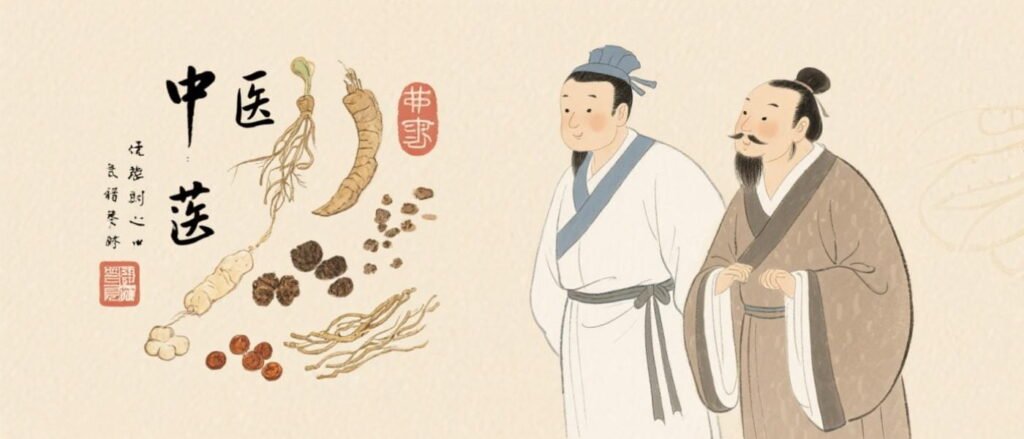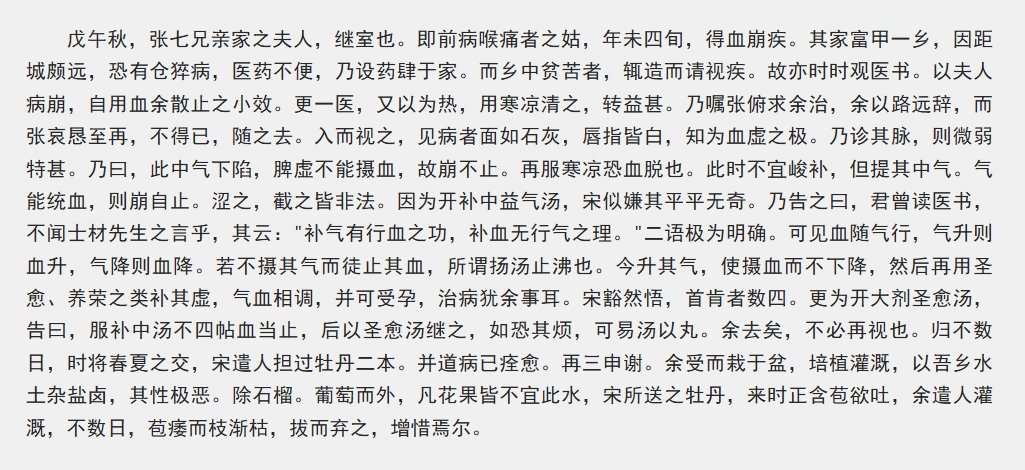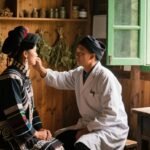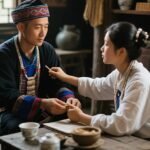In the autumn of the Wuwu year (an ancient Chinese calendar system), the second wife of my relative Mr. Zhang Qi developed severe metrorrhagia (abnormal uterine bleeding). She was under forty years old and happened to be the mother-in-law of the previously mentioned throat pain patient. Her family was extremely wealthy but lived far from the city. To address medical emergencies, they had set up a herbal pharmacy at home, where she occasionally treated impoverished villagers, prompting her to study medical texts herself.

When her uterine bleeding began, she first used Carbonized Human Hair (Xueyu San), a hemostatic preparation made from burnt human hair, which provided slight relief. Another physician later misdiagnosed her condition as “excess heat” and prescribed cold-natured herbs, worsening the bleeding. At Mr. Zhang’s repeated pleas, I reluctantly traveled to their distant residence despite initial reservations.
Upon examination, the patient exhibited chalk-white complexion, pale lips and fingernails, along with a notably weak pulse. I diagnosed this as Sinking Middle Qi (a type of energy imbalance in traditional Chinese medicine)—specifically, spleen deficiency failing to control blood circulation. I warned that continued use of cold-natured herbs risked life-threatening blood loss and prescribed Middle-Tonifying Qi-Boosting Decoction (Buzhong Yiqi Tang), a classic formula containing ingredients like Ginseng (Renshen) and Milkvetch Root (Huangqi) to uplift bodily energy.
Mr. Song (a family member) initially doubted this seemingly ordinary prescription. I quoted the Ming Dynasty physician Li Shicai: “Replenishing Qi can promote blood circulation, but merely nourishing blood cannot enhance Qi.” I explained that blood follows Qi’s movement—like trying to cool boiling water by skimming its surface, merely stopping bleeding without addressing energy deficiency proves futile. Only by restoring Qi could blood circulation normalize, after which Sacred Healing Decoction (Shengyu Tang)—a blood-nourishing formula combining Four Substances Decoction (Siwu Tang) with Ginseng (Renshen) and Milkvetch Root (Huangqi)—and other tonic formulas could restore health and potentially improve fertility.
Enlightened, Mr. Song approved the (used in traditional contexts) plan. I prescribed a large dose of Sacred Healing Decoction (Shengyu Tang), instructing that Middle-Tonifying Qi-Boosting Decoction (Buzhong Yiqi Tang) should stop bleeding within four doses, after which the formula could be converted into pills for convenience, eliminating the need for follow-up visits.
By early summer the following year, the Zhang family sent two peony plants as gratitude. Though the buds were ready to bloom, the saline-alkali soil in my coastal region—only tolerable to pomegranates and grapes—killed the peonies within days despite careful watering. Their withered stems became a poignant reminder of nature’s constraints.



Leave a Reply